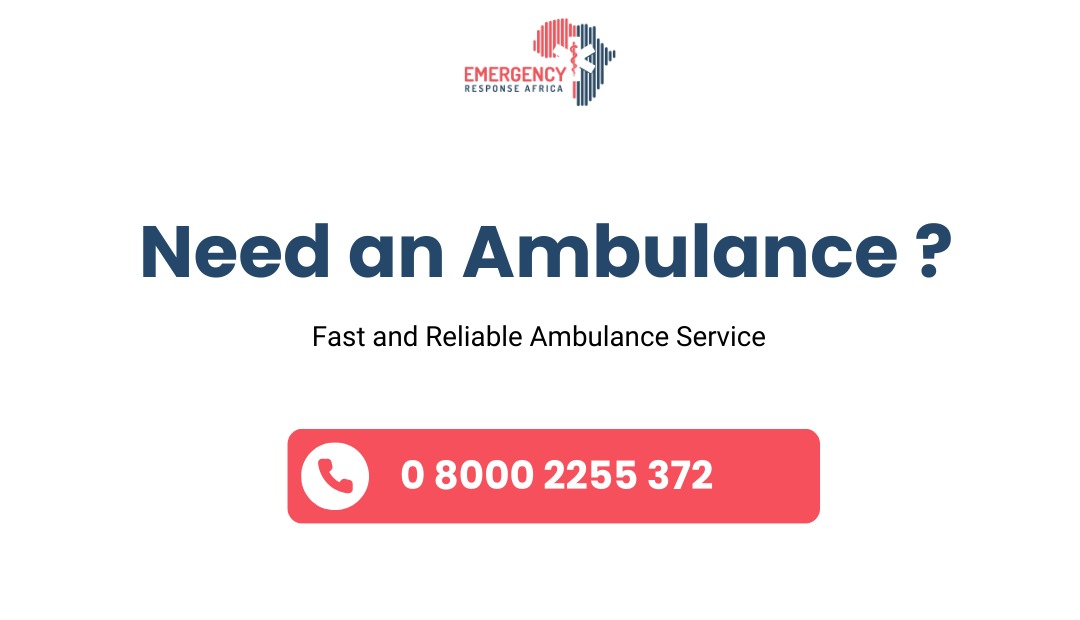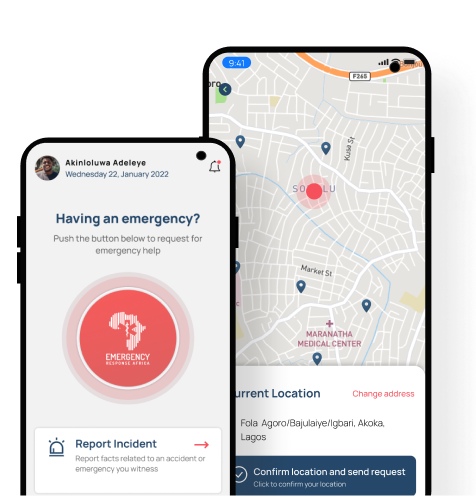It’s never a great feeling when you hear about one of your friends, colleagues or family members being in an unfortunate situation. It can feel as though the world has suddenly turned against you, and there’s nothing that you can do about it. This article is here to help you easily navigate Emergency Management in Nigeria. Keep reading if you want to know the appropriate response to emergencies.
WHAT IS AN EMERGENCY?
According to the dictionary, an emergency is a severe, unexpected and awful situation requiring immediate action. Medically, a problem is an emergency when it is life-threatening.
For many Nigerians, emergency management and preparedness can seem abstract. After all, if it doesn’t happen to you, then why should you worry? An emergency can strike at any time–and anyone can be affected by it. Hence, there is a need for preparedness and a solid understanding of emergency management.
Our comprehensive guide on emergency management in Nigeria emphasises the importance of proper training and preparedness. By equipping yourself with the proper knowledge and skills, you can ensure the safety and well-being of your loved ones in times of crisis.
EMERGENCY versus URGENCY – Emergency Management in Nigeria
Urgency is a condition that is very important and needs immediate attention. The difference is that an emergency is life-threatening, as stated earlier.

There is a massive difference between urgency in care and emergency care, and they should be distinct. Some situations are urgent but not emergency; an example is a patient with a high fever and severe headache but is stable and not in immediate danger.
This situation requires prompt medical attention to know the symptoms and start the treatment needed. Still, it does not pose an immediate threat to the patient’s life, unlike a heart attack or severe injury. In this case, while the condition is urgent, it does not constitute an emergency.
These days, our emergency centres in Nigeria are filled with patients who need urgent care, not emergency attention. For example, a cut may require urgent care, but persistent, heavy bleeding is an emergency. Nigerians must understand the role of primary, secondary and tertiary medical centres.
COMMON EMERGENCIES IN NIGERIA
As established earlier, an emergency is anything that puts life at risk. As an emergency response organisation in Nigeria, Emergency Response Africa has had to provide emergency services in different situations.
The most common ones are as follows – Loss of consciousness, cardiac arrest, continuous bleeding, change in mental status, abdominal pain, head or spine injury, severe or persistent vomiting, coughing or vomiting blood, to mention a few.
RELATED SERVICES:
COMMON NIGERIAN EMERGENCY BEHAVIOUR
When faced with an emergency, people call their go-to person – family members, pastors, imams, neighbours, etc.- which can sometimes cause more damage to an already life-threatening situation.
A few months ago, someone contacted a family member in Canada about a medical emergency in Nigeria. The person in Canada thankfully knew ERA and immediately referred them to us. Knowing who to call and not just call anyone is very important.
ERA, a healthcare organisation, has hosted a series of Twitter conversationabout how emergency response improved in Nigeria and emergency issues in the country. We are at the forefront of the discussion and leading the conversation.

WAYS TO MANAGE EMERGENCIES
-
STAY CALM
In most cases, it can be challenging to maintain a cool head during an emergency, but it is essential in any emergency. Be calm when faced with an emergency and think clearly to make better decisions. Taking deep breaths and assessing the situation is important before taking action. In addition, this can help you respond appropriately, whether calling for help, providing first aid, or evacuating the area.
READ MORE
-
what to do during an emergency situation: How to prepare for an emergency and stay calm and confident
-
Detty December Checklist – A Guide to Christmas Vacations in Nigeria
-
PRE-HOSPITAL CARE
Whether it is cardiac arrest, continuous bleeding, loss of consciousness, or other life-threatening conditions, what happens before professional emergency help arrives can be the difference between life and death.
Pre-hospital care is the care given before the victim reaches the hospital, and it is supposed to be administered by a trained paramedic. Before a paramedic arrives, a person who is well-trained in first aid can help to save lives.
However, everyone must learn practical first-aid skills in an emergency. If you do not have basic first-aid skills, register for our training and get a 50% discount today. If you have first-aid training and are scared to help due to fear of being arrested if things go wrong, you should not be.
Moreover, as a trained first aider, it is important to activate professional response as soon as possible, even while you assist the patient. It protects both you and the patient. You can activate the professional response in 2 ways:
- Call the ERA toll-free line
- Send a request via the Signal by ERA App (available for iOS and Android)
EMERGENCY PREPAREDNESS
Beyond obtaining the requisite training, it is also important to be prepared for the financial implications of an emergency. Emergency Management in Nigeria can be costly, but it does not have to be if you plan.
We are proud to add Leadway Health as one of our HMO partners, allowing us to deliver emergency care to you without hassle. Check out the recent announcementhere.
If you will be spending your Christmas holiday in Nigeria this year, you should take advantage of the fantastic discounts and benefits we have for you in our TravelSafe plan. Our TravelSafe Plan is an all-in-one package to help you have a secure and enjoyable Christmas in Nigeria this December.
Join our mailing list for a 10% discount on our TravelSafe Plans today!




